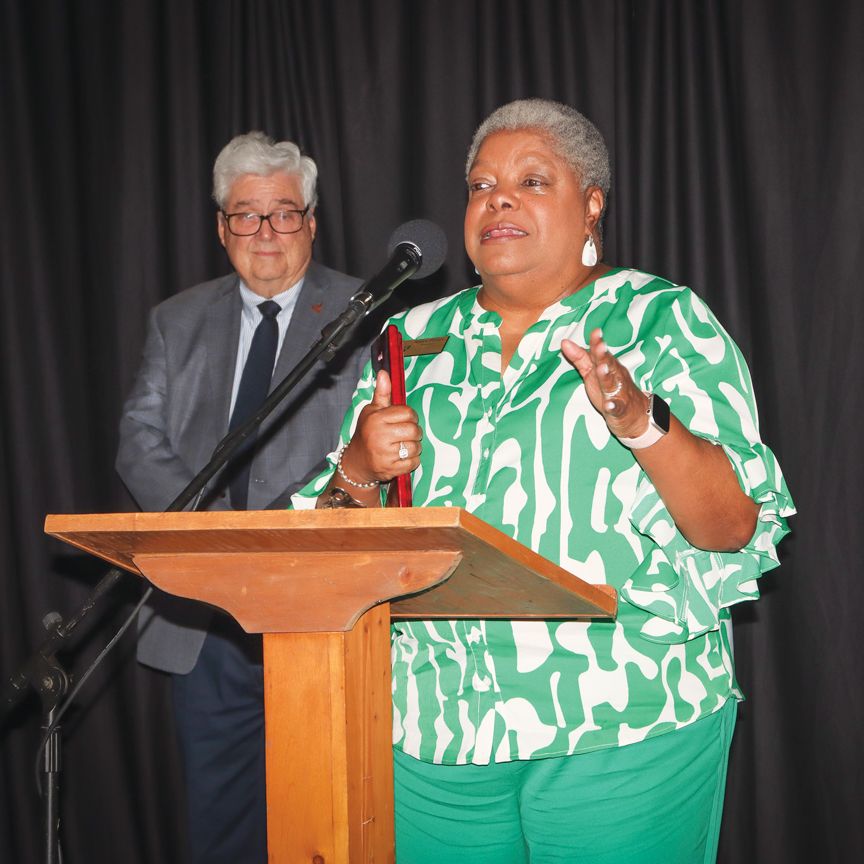Twenty years ago, the U.S. Congress passed legislation authorizing the Veterans History Project, an effort to collect firsthand accounts of American servicemen and women during wartime. This nationwide outreach focused renewed interest on the experiences of old soldiers, from the World War I to the Iraq War.
Today, efforts continue to collect and archive the remembrances of military veterans. Similar projects have been launched by organizations and individuals dedicated to preserving the war stories of vets in their own words.
The problem is that many of the young men and women who served have aged and passed away. The Department of Veterans Affairs estimated in 2019 only 389,000 WW II veterans survived from the 16 million who formed our military from 1939 until 1945. Most are in their 90s.
I recall my eldest son interviewing his grandfather for the Veterans History Project soon after the program launched. Dad had never spoken much about his combat experiences in the Pacific Theater. He opened up for his grandson, however, describing hellish scenes of death and destruction.
We have all heard the official stories of war heroes, how they earned their medals and honors. The majority of veterans, however, came home without the fame and fanfare attached to brave deeds. They experienced the same horrors, lived with the same threat of death but did their jobs and returned. To me, these men and women were worthy of recognition, but many of them avoided it.
The same applies to successive generations in Appalachia and the rural South. The men and women who grew up in the early Twentieth Century and during the Great Depression, especially those bound to the land but rarely owning it, became the sturdy, selfless soldiers, sailors and aviators who swelled the ranks of our military in WW II.
Now, these generations are also disappearing. Little attention has been paid to them, so little that their great-grandchildren are mostly clueless about their lives and the stark poverty from which they came. It is a shame that more can not be done to preserve their memories.
This was brought home to me when my step-daughter, a 17-year-old high school student, asked to interview me about my father’s generation. “Why?” I asked. Turns out her teacher advised that they find a Baby Boomer to bridge the generation gap.
Of course, I have lots of stories. The product of large families on both maternal and paternal sides—mainly poor sharecroppers from 1900 through the 1940s—I have recorded the passed-down verbal histories and used my ancestors’ stories in newspaper columns and magazine articles.
I never imagined that one day my recollections of the previous generation would link the rural folkways of the 1920s and ‘30s to the digital era more than 100 years later. It makes perfect sense. My parents, who grew up during the Depression, are gone, most of my aunts and uncles, too. Grandparents and great-grandparents preceded them, of course.
They left behind dozens of offspring, most of them Boomers like me. Stories from my father about his parents and grandparents are the links to a defining period in the South, not only for rural families but the United States.
It was a time of hunger—even starvation—and economic want for people who lived on and worked land they did not own, raising cotton and other crops on the sharecropping system. White and black families survived this way, but it was a subsistence existence. Disease, infant mortality and early adult death were facts of life.
Children worked in the fields. Schooltime revolved around planting and harvest schedules. There never seemed enough to eat. You hunted and fished to supplement protein, ate lots of cornbread, beans and greens and considered refined sugar a rare treat. Illness lurked: polio, whooping cough, measles and chicken pox. Cholera epidemics still occurred, and malaria was not rare. Neither were parasite infestations, tetanus or food poisoning.
Although it was a dire time, people never lost hope. They raised large families, with plenty of sons and daughters to help with the work.
They sat with ill neighbors, pitched in to assist folks during emergencies, read their bibles and tithed from what little they had. They launched the Great Generation, from whence came millions of service men and women during the next world war.
Dad plowed for a neighbor seven straight days, earning a pint of sorghum syrup for his labor. He could not wait to join the Navy, where—he always bragged—he traded poverty for a future. All he had to do was survive. These are examples of generational stories that will disappear unless families save them.
Today, Boomers like me are in decline. When we are gone, will anyone care about our direct ancestors and their sacrifices? Maybe not, but it would be a shame not to have preserved memories of their lives and the importance of these generations of Americans.



